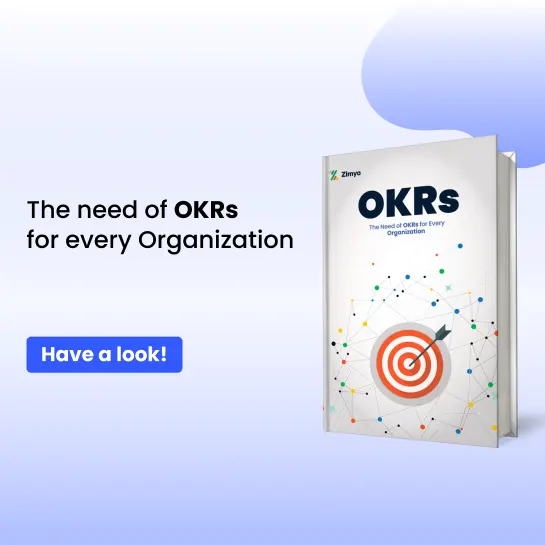What would you opt for, when required to choose between salary and company culture? A prominent, expected answer will be salary. A wise man once said, there should be these three things in your workspace
- Money
- Respect
- Interest
Even if you have any two, you are good to continue, otherwise, switch. No matter what importance a person assigns to the digits in his salary, it is undeniable that if they do not receive an equal amount of respect, it’s not worth their stay. There is a beaming role of culture in performance management.
If we look at the current generation of working individuals, people are highly ambitioned and believe in multi-tasking. Studies reveal that a majority part of young adults in the corporate world prioritises culture over salary. There are ‘n’ number of ways through which a person can generate income. What matters most is whether their pay justifies their labour. Having said that, salary is no more the only motive behind an employee’s dedication towards their organisation. Money, undoubtedly, satisfies the immediate needs of a person, but his goal and ambitions are what feeds his soul.
What is organizational culture?
A company’s expectations, goals, values and belief comprise the organizational culture, that paves the way for employee’s behaviour while at work. Based on written and unwritten rules, shared attitudes, customs and much more, culture is defined. These have been curated and developed in the organization over time and are considered valid for current and future employees.
Business leaders, CEO’s and CHROs play a vital role in shaping this culture and making sure that the employees abide by the same. It is the behavioural framework and organizational culture that generates higher job satisfaction. This, in turn, means that every organization should align their culture and leadership in a manner that the end result is job satisfaction.
Sensing the motive of your employees
In order to understand changing organizational structures, we must first know the motive behind working for every employee. Let’s have a look at the various factors taken into consideration when choosing between salary and company culture:
- Financial Status: Employees with a stable financial status do not worry much about how much they are being paid. Either they are working to learn something new or gain exposure and make connections.
- Ambitions in life: What an employee’s ultimate goal is, makes a lot of difference in their approach towards their work and salary. If they aim to be wealthy and renowned then the driving force is salary, on the other hand, if they wish to grow and learn then the culture plays a role.
- Job Field: The field or stream in which an employee is working also contributes to this decision-making. There are certain job fields where the salary range does not increase significantly. Employees in such fields are aware of the truth and the only string that keep them attached is respect and company culture.
- Zeal to Learn: Some people work to gain knowledge about the market in a specific field, this may be because of startup dreams or general learning. In such cases salary does not make much of a difference.
The above pointers clear the air around myths that only salary is important and the motive behind working. It is the responsibility of an HR to understand the needs of their employees and fulfil them to the best of their and the organization’s growth. When HR managers know why people in their organization are dedicatedly working, they should devise ways to make their stay better.
Statistics on the importance of company culture
Role of culture in performance management and retaining talent is undeniable. Have a look below at some of the recently released statistics on the importance of company culture for an employee by Builtin
- 46% of job seekers cite company culture as very important when choosing to apply to a company
- 15% of job seekers turned down a job offer because of the company’s culture.
- Employees who don’t like their organization’s culture are 24% more likely to quit
- To a majority of today’s talent pool, job quality matters more than how much they’re being paid
These stats clearly state the importance of culture and the need to make a balance between salary and company culture.
How can HR managers bring a balance between Salary and Culture?
The HR department of an organization is gifted with the power to make or break employee experience. From hiring the right people to making sure that the organization is able to retain talents, it is the HR’s responsibility. There are various ways by which these authorities can achieve the aforementioned goals. Some of these include:
Salary isn’t everything
Chief economist at Glassdoor, Andrew Chamberlain, suggests ‘culture and the values of the organization, closely followed by the quality of the senior leadership and career opportunities for the employees’ are the determining factors of satisfaction at work. Motivating culture is helpful in attracting and retaining top talents of the industry. So, HR managers should be working towards providing this persuading company culture at the workplace. This will motivate employees to walk an extra mile for personal as well as organizational growth.
Amplify communication
The HR department should promote communication between teams and their leaders. This will disrupt traditional methods of maintaining hierarchy and build a more cordial relationship between employees and employer. Communication is the basis of building relationships, and relationship building is all that matters for culture management.
Build transparency
Every member of the organization is talking about the importance of a balance between culture and salary. It should no longer remain a discussion between four walls of a management room. We understand that salary comes under a non-disclosure agreement in most of the organizations, but let’s not talk about figures and preferably the importance of pay parity.
Make sure payroll is processed on time
How regular an organization is, in processing their employee’s payroll on time and with no error makes a lot of difference in talent retention. Organizations should have proper expense management software to automate employee salary structure. It is imperative that the payroll of employees is processed within the first week of every month and most probably in the first 2 days. This should be done keeping into consideration organizational finances and stability.
Maintain Pay Parity
It is essential for organizations to maintain pay parity, both on ethical and moral grounds. Equal pay for equal work must not remain in papers and slogans anymore, rather organizations should incorporate this in their payroll modules. This provides employee satisfaction at both salary and cultural levels.
There are various factors that decide what matters most to an employee, salary or culture. These are the determining factors for defining various cultural and payroll policies for any organization. Every department head also plays a significant role in imparting and cultivating an organizational culture in the hearts and minds of the employees.
How can managers impact organizational culture?
Every manager’s leadership style should align with the company culture they are working in. They directly influence corporate culture with their methods of delegation, management and allotment of resources. Managers should lead with example, where they value and strengthen company culture for their resources to follow. Given below are some of the ways in which managers impact organizational culture.
- Helping employees furnish their skills
Organizational culture is a lot about developing and nurturing skills in your employees, to expand their knowledge and strengthen the human capital. Every manager should be able to decipher the hidden talents of their workforce to utilize their potential to its optimum usage. They should also be delegating interdepartmental work to their resources to amplify communications and enhance team building.
- Reinforcing accountability and ownership
Workplace is considered the best place for individuals to learn the value of accountability in their lives. When employees are made accountable for their actions and deliverables by the manager, no matter how much they crib about it, they will surely learn to shoulder responsibilities. This cannot happen in a day or two, but with continuous efforts.
- Treat employees like human beings
Now is the accurate time for managers to realize the importance of the saying “With great power comes great responsibilities“. The managerial position is nothing if you do not know how to build teams and get your work done. Nobody likes to be treated like slaves, which is why bonded labour is criminalized. A manager who empathizes with the emotions of his/her resources is able to generate the same in reciprocation. As for facts, 58% of employees would stay at a lower-paying job if it meant working for a great boss. You got your clue here!
It won’t be wrong to say that organizational culture is a culmination of a variety of attributes at different levels in the company. How these attributes are aligned to meet the ultimate goal is what matters. Just hiring the right people is not enough, it is important to retain your human capital by providing them with a blooming organizational culture, not just in papers, but also in actions.






